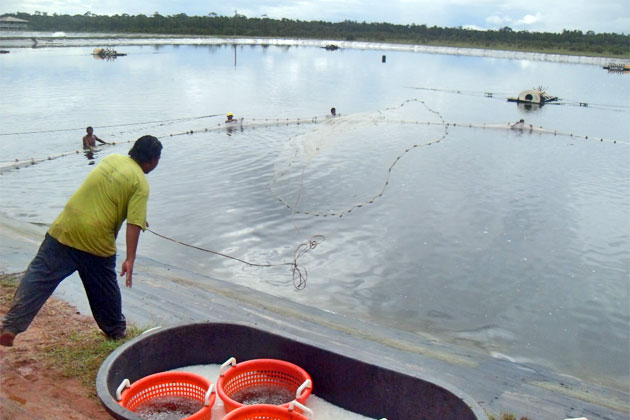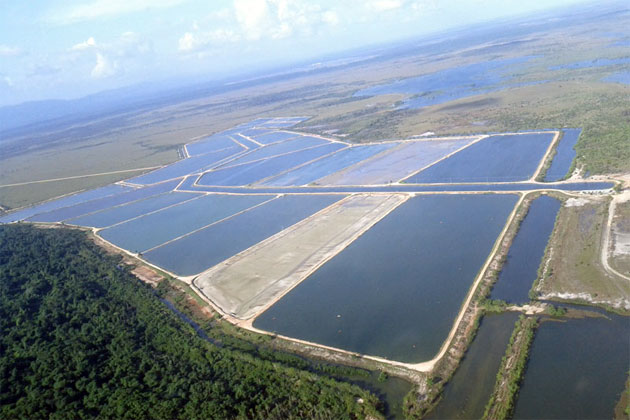Five shrimp farms under the Belize Shrimp Grower’s Association have been awarded Aquaculture Stewardship Council (ASC) certification as responsible and well-managed farms.
Alvin Henderson, a member of the Belize Shrimp Growers Association, describes Belize as a country of rich biodiversity with a stretch of mangrove belt along the coast that acts as a natural filtration system.
“The journey towards ASC certification has helped to highlight areas of our operations where we can make meaningful change with minimal financial resources. Sometimes all that is really required is a change of perspective,” Henderson said.


“We’re using less water on our farm through improving the way we manage water quality. And, by focusing on compliance, we uncovered that the water in the receiving body is of even better quality since our mangrove buffer acts as a biofilter.”
Dominique Gautier, technical executive at Belize shrimp supplier Sea Farms, said the ASC certification will help in developing a “positive image” of Belize as a trusted provenance in the marketplace, and will open “new commercial opportunities” for Belizean shrimp.
The Belize Shrimp Growers Association was provided with funding from the Inter-American Development Bank (IDB) through Compete Caribbean, a program to support private sector development and competitiveness in 15 Caribbean countries. Sustainable Trade Initiative IDH has supported the farmers with funds and technical assistance, such as training and research.
Following an independent assessment conducted by the conformity assessment body, Control Union, shrimp sourced from these farms is now eligible to carry the ASC logo.
Through ASC certification shrimp farms aim to measurably reduce adverse impacts on the environment and local community by preserving wetlands and mangroves; addressing the transfer of viruses and reducing disease; bringing cleaner water and ensuring the responsible use of water; ensuring the responsible use of feed; and addressing biodiversity issues.











